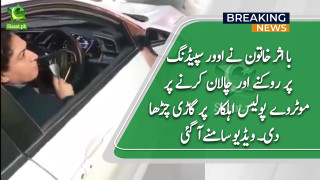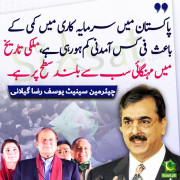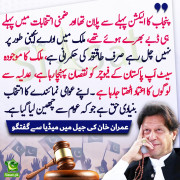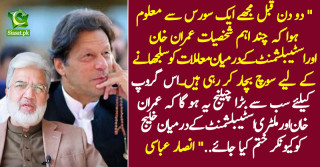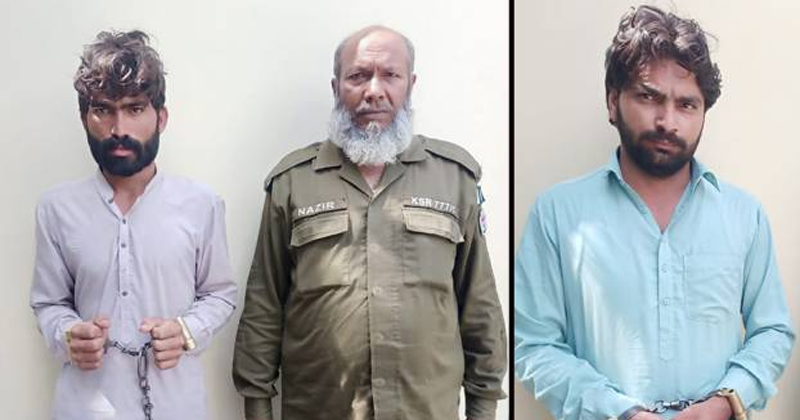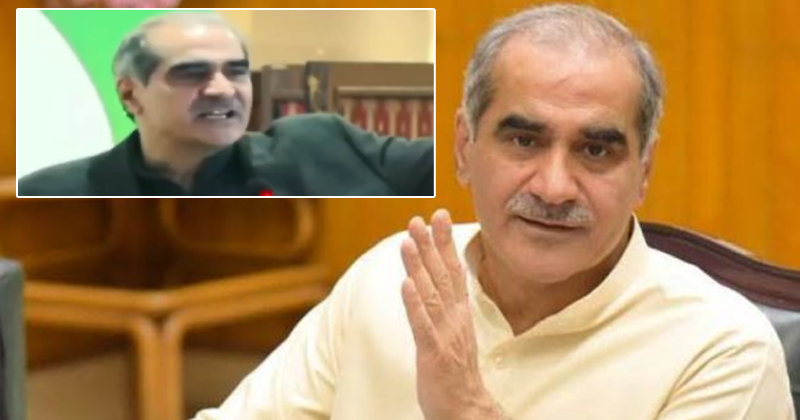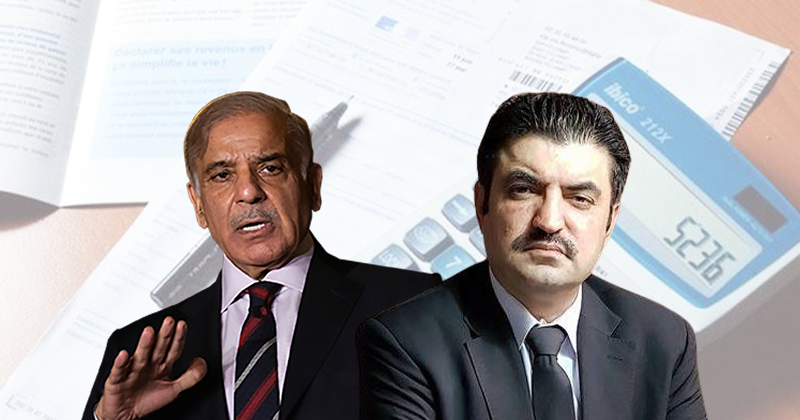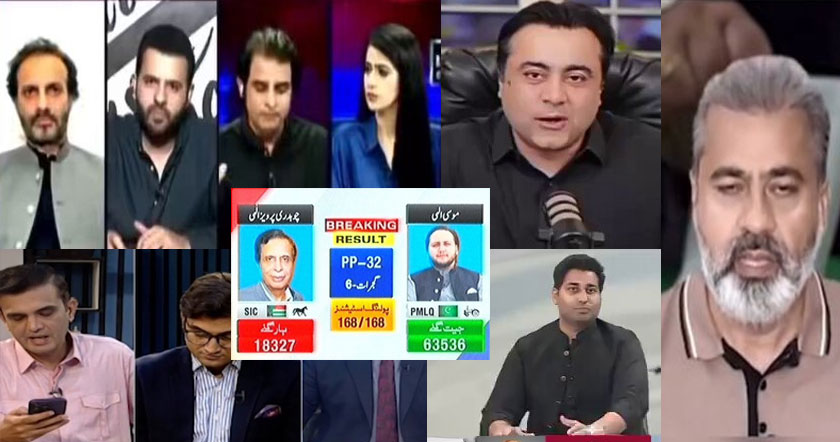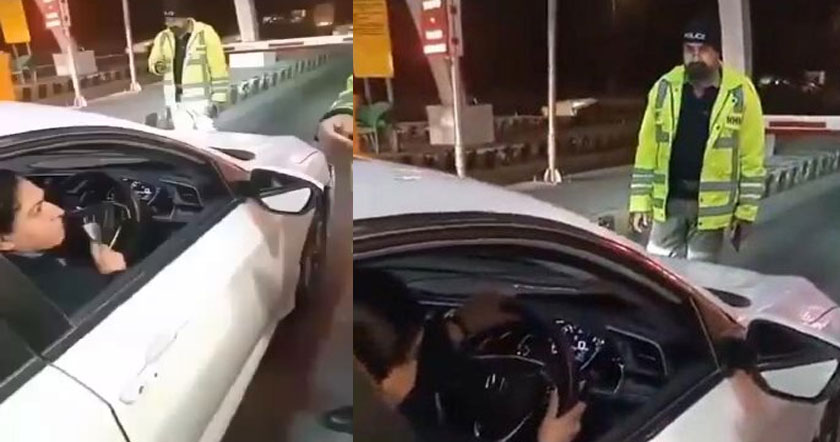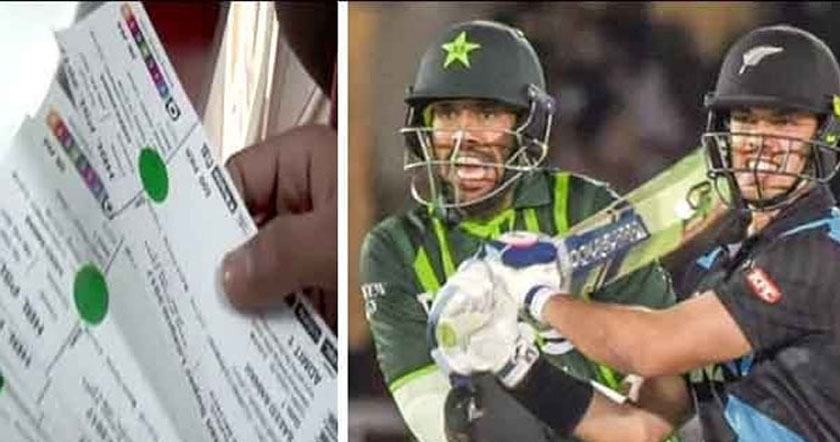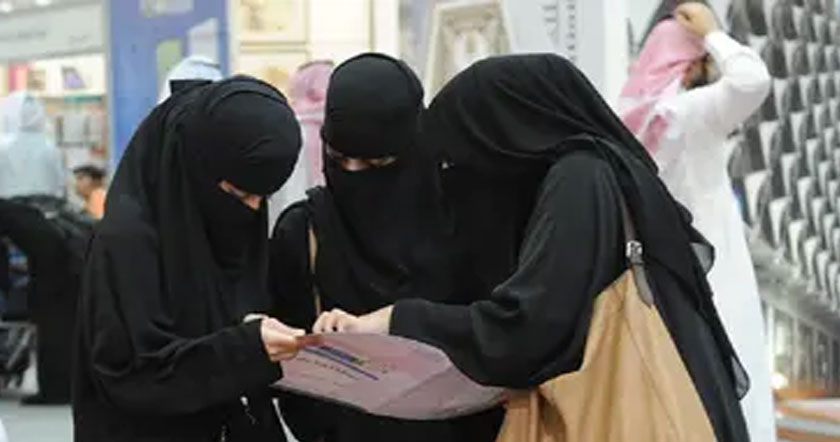Need for coexistence
Tasneem Noorani
Thursday, March 17, 2011
The instinct to make comparisons is irrepressible when a Pakistani visits India and vice versa, and I am no exception. The one thing that strikes you immediately is the realisation that the Indian media love to hate Pakistan. Even when they are talking about cheating allegations against Sri Lankan cricketers, the background television footage shows Pakistani players. Pakistanis are painted as villains in every form; whether it is terrorism or cheating in cricket and, of course, the ISI, blamed instinctively for all ills in India, is the ultimate villain.
At present, there is demand for re-auctioning 2G licenses (related to cell phone service) because Eteslat, one of the licensees, is perceived to be in cohorts with the ISI simply because it also operates in Pakistan.
Whether true or false, by continuously portraying Pakistan as the big, bad villain, the media and the establishment are making life very difficult for the leaders in the sub-continent. Since neighbours cannot be changed; both countries have no option but to coexist. In running Pakistan down constantly, the Indian public is being conditioned not only to hate Pakistan but also Pakistanis, which will make it very difficult for the Indian leaders to sell any scheme for reconciliation (if there is one in our lifetime) to the Indians.
On a visit to an archeological site in the suburbs of Chennai (old Madras), I hired a guide. While he was delivering his rehearsed speech, a group of bubbly young college students from Andhra Pradesh set themselves at a vantage point to hear the guides commentary for free. Not to be outsmarted, he negotiated a discounted rate with the group leader after which the giggly girls and the spritely boys became very friendly with me and I soon became part of their group. After sometime, one of them asked me where I was from. Pakistan, I answered. The groups warmth towards me promptly dissipated. When we arrived at the next statue, I found myself alone with the guide who had to complete the round with me any way.
I observed that in most places, warm greetings turned into polite smiles when Indians found out they were speaking to a Pakistani. Following the Mumbai attacks, Indian media have done irreparable damage to the Indo-Pak people to people contact. If only they were to allow our news channels to be viewed there as well and give Indians a chance to discover that ordinary Pakistanis are themselves victims of terrorism.
Notwithstanding its dislike for Pakistan, India is doing well for itself. The most striking contrast between the two countries is in terms of law and order. There are no gun-toting civilian guards to be seen in India. Automatic weapons are only seen in the hands of law enforcement agencies and that too in sensitive places such as airports, government buildings, and now, near the Taj Hotel in Mumbai after the terrorism episode that occurred there.
Whoever organised the Mumbai attacks needs to understand that such incidents only help unite Indian society in its resolve against Pakistan and as a result strengthen the anti-Pakistan stance of the Indian government.
On another note, traffic in India is terrible but commuters and drivers have somehow learnt to cope with it. Drivers appear to nudge each other off the road but do it with subtlety rather than aggression. I saw very little evidence of road rage there.
Indian institutions are intact and working, even if they are on subsidies. Their railway is still adding 500 plus miles of track to their system every year; adding thousands of new wagons and engines every year. It is the preferred mode of transport for most intercity travellers, considering the poor quality of intercity roads and excessive heavy vehicle traffic. Express ways are now being built on a BOT basis by the private sector. This approach is being successfully followed in other infrastructure projects including airports.
The inefficiency of Indian Airways is not dissimilar to PIA. They recently asked their government to give them a onetime amount of Rs 17,000 crores (Indians still talk in lakhs and crores) to enable them to overcome a financial crunch. But the private airlines are doing what the state airline is unable to do, and they are thriving, having taken up 85 percent of the market and having rendered Air India an insignificant player. The airline industry as an institution is, therefore, working very well.
Their police and criminal justice system, despite its corruption, is still intact. In Jaipur, I was stopped for sitting in the front seat without a seatbelt. The constable threatened to fine us Rs 700 and told us that he had informed his superior (apparently he did not have the power to fine us). After a few minutes of harassment, our driver took him aside, handed him a hundred rupee note, and we were on our way. Despite the corruption, the seatbelt rule and helmets for motorcyclists were effectively enforced.
Public transport, be it in the form of an auto (as a rickshaw is called in India), cycle-rickshaw (still in abundance here) or taxi, all appeared properly registered, uniformly painted, and under the control of the police. In Bombay, all rickshaw and taxi drivers wear uniforms.
There are few policemen visible in most Indian towns, even if you count the traffic police. Even though the gap between the rich and the poor is acute and more than 35 percent of the people still live below the poverty line, jewellery stores do not require special guards, nor are there any visible police arrangements.
The criminal justice system is archaic and slow, but it has a long memory. The recent conviction of 11 Muslims involved in the Gogra incident, more than a decade after the incident, is a case in point.
Tax collectors are dreaded, even though, there is still a lot of black money floating around and there are more than a trillion dollars reportedly stashed away by the Indian elite in Swiss banks. Every day, there are reports of raids by the dreaded CBI (the Indian equivalent of our FIA). At the receiving end are high-profile politicians, bureaucrats, industrialists, and film actors.
As a result, people are concerned about keeping their accounts in order. The Indian tax system exists for everyone. People have to explain the source of income funding their assets and lifestyle. That is perhaps one reason why they prefer to keep untaxed money abroad. Not that they dont splurge inside the country. There are newspaper reports of a Rs 100 crore (200 crore Pakistani rupees) wedding celebrating the marriage of the children of two politicians. The brides father reportedly gifted a Rs 33 crore helicopter to the groom.
While one can give any number of reasons for Indias current confidence in itself as a country, there are two reasons, which stand out in my opinion. Firstly, the power of the states writ and consequent law and order in society. Secondly, effective education at all levels of Indian society. These are the two goals Pakistan also needs to work towards to stay relevant in the sub-continent. (http://www.thenews.com.pk/TodaysPrintDetail.aspx?ID=36639&Cat=9)
Tasneem Noorani
Thursday, March 17, 2011
The instinct to make comparisons is irrepressible when a Pakistani visits India and vice versa, and I am no exception. The one thing that strikes you immediately is the realisation that the Indian media love to hate Pakistan. Even when they are talking about cheating allegations against Sri Lankan cricketers, the background television footage shows Pakistani players. Pakistanis are painted as villains in every form; whether it is terrorism or cheating in cricket and, of course, the ISI, blamed instinctively for all ills in India, is the ultimate villain.
At present, there is demand for re-auctioning 2G licenses (related to cell phone service) because Eteslat, one of the licensees, is perceived to be in cohorts with the ISI simply because it also operates in Pakistan.
Whether true or false, by continuously portraying Pakistan as the big, bad villain, the media and the establishment are making life very difficult for the leaders in the sub-continent. Since neighbours cannot be changed; both countries have no option but to coexist. In running Pakistan down constantly, the Indian public is being conditioned not only to hate Pakistan but also Pakistanis, which will make it very difficult for the Indian leaders to sell any scheme for reconciliation (if there is one in our lifetime) to the Indians.
On a visit to an archeological site in the suburbs of Chennai (old Madras), I hired a guide. While he was delivering his rehearsed speech, a group of bubbly young college students from Andhra Pradesh set themselves at a vantage point to hear the guides commentary for free. Not to be outsmarted, he negotiated a discounted rate with the group leader after which the giggly girls and the spritely boys became very friendly with me and I soon became part of their group. After sometime, one of them asked me where I was from. Pakistan, I answered. The groups warmth towards me promptly dissipated. When we arrived at the next statue, I found myself alone with the guide who had to complete the round with me any way.
I observed that in most places, warm greetings turned into polite smiles when Indians found out they were speaking to a Pakistani. Following the Mumbai attacks, Indian media have done irreparable damage to the Indo-Pak people to people contact. If only they were to allow our news channels to be viewed there as well and give Indians a chance to discover that ordinary Pakistanis are themselves victims of terrorism.
Notwithstanding its dislike for Pakistan, India is doing well for itself. The most striking contrast between the two countries is in terms of law and order. There are no gun-toting civilian guards to be seen in India. Automatic weapons are only seen in the hands of law enforcement agencies and that too in sensitive places such as airports, government buildings, and now, near the Taj Hotel in Mumbai after the terrorism episode that occurred there.
Whoever organised the Mumbai attacks needs to understand that such incidents only help unite Indian society in its resolve against Pakistan and as a result strengthen the anti-Pakistan stance of the Indian government.
On another note, traffic in India is terrible but commuters and drivers have somehow learnt to cope with it. Drivers appear to nudge each other off the road but do it with subtlety rather than aggression. I saw very little evidence of road rage there.
Indian institutions are intact and working, even if they are on subsidies. Their railway is still adding 500 plus miles of track to their system every year; adding thousands of new wagons and engines every year. It is the preferred mode of transport for most intercity travellers, considering the poor quality of intercity roads and excessive heavy vehicle traffic. Express ways are now being built on a BOT basis by the private sector. This approach is being successfully followed in other infrastructure projects including airports.
The inefficiency of Indian Airways is not dissimilar to PIA. They recently asked their government to give them a onetime amount of Rs 17,000 crores (Indians still talk in lakhs and crores) to enable them to overcome a financial crunch. But the private airlines are doing what the state airline is unable to do, and they are thriving, having taken up 85 percent of the market and having rendered Air India an insignificant player. The airline industry as an institution is, therefore, working very well.
Their police and criminal justice system, despite its corruption, is still intact. In Jaipur, I was stopped for sitting in the front seat without a seatbelt. The constable threatened to fine us Rs 700 and told us that he had informed his superior (apparently he did not have the power to fine us). After a few minutes of harassment, our driver took him aside, handed him a hundred rupee note, and we were on our way. Despite the corruption, the seatbelt rule and helmets for motorcyclists were effectively enforced.
Public transport, be it in the form of an auto (as a rickshaw is called in India), cycle-rickshaw (still in abundance here) or taxi, all appeared properly registered, uniformly painted, and under the control of the police. In Bombay, all rickshaw and taxi drivers wear uniforms.
There are few policemen visible in most Indian towns, even if you count the traffic police. Even though the gap between the rich and the poor is acute and more than 35 percent of the people still live below the poverty line, jewellery stores do not require special guards, nor are there any visible police arrangements.
The criminal justice system is archaic and slow, but it has a long memory. The recent conviction of 11 Muslims involved in the Gogra incident, more than a decade after the incident, is a case in point.
Tax collectors are dreaded, even though, there is still a lot of black money floating around and there are more than a trillion dollars reportedly stashed away by the Indian elite in Swiss banks. Every day, there are reports of raids by the dreaded CBI (the Indian equivalent of our FIA). At the receiving end are high-profile politicians, bureaucrats, industrialists, and film actors.
As a result, people are concerned about keeping their accounts in order. The Indian tax system exists for everyone. People have to explain the source of income funding their assets and lifestyle. That is perhaps one reason why they prefer to keep untaxed money abroad. Not that they dont splurge inside the country. There are newspaper reports of a Rs 100 crore (200 crore Pakistani rupees) wedding celebrating the marriage of the children of two politicians. The brides father reportedly gifted a Rs 33 crore helicopter to the groom.
While one can give any number of reasons for Indias current confidence in itself as a country, there are two reasons, which stand out in my opinion. Firstly, the power of the states writ and consequent law and order in society. Secondly, effective education at all levels of Indian society. These are the two goals Pakistan also needs to work towards to stay relevant in the sub-continent. (http://www.thenews.com.pk/TodaysPrintDetail.aspx?ID=36639&Cat=9)


